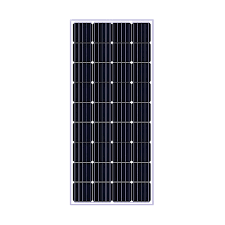Solar System Price in Pakistan
In recent years, the demand for renewable energy sources, especially solar power, has seen a significant rise in Pakistan. With energy crises affecting the country and electricity prices continuously rising, more and more households and businesses are turning to solar power as an affordable and sustainable solution. Solar energy not only offers financial savings but also helps reduce environmental impact by reducing carbon footprints. In this article, we will discuss the solar system price in Pakistan, factors influencing costs, and the benefits of installing a solar system.
The Growing Popularity of Solar Energy in Pakistan
Pakistan receives abundant sunlight throughout the year, making it an ideal location for harnessing solar energy. With electricity demand exceeding supply in the country, solar power has emerged as a viable alternative. Moreover, the government of Pakistan has introduced various incentives and policies to encourage the use of solar energy, such as subsidies, tax exemptions, and net metering, further boosting the popularity of solar systems.
The price of a solar system in Pakistan depends on various factors, such as the type of solar system, its capacity, and the brand. As solar technology continues to evolve, prices have become more competitive, making it easier for people to adopt this green energy solution.
Factors Affecting Solar System Prices in Pakistan
Capacity (Wattage)
The most significant factor influencing the price of a solar system is its capacity. Solar systems come in different sizes, ranging from small setups for residential use to larger systems designed for industrial or commercial purposes. The capacity of a solar system is measured in watts (W) or kilowatts (kW), and the larger the capacity, the higher the price.
- Small solar systems (1 kW to 3 kW): These systems are suitable for households with minimal electricity usage. The price for a 1 kW solar system typically ranges between PKR 90,000 to PKR 120,000.
- Medium solar systems (5 kW to 7 kW): Ideal for medium-sized homes or businesses with moderate electricity usage, the price for a 5 kW system may range from PKR 250,000 to PKR 350,000.
- Large solar systems (10 kW and above): These systems are typically used for large homes, commercial establishments, or industries. A 10 kW solar system can cost anywhere between PKR 450,000 to PKR 600,000 or more, depending on the brand and quality of components used.
Quality of Components
The price of a solar system can also vary based on the quality of the components. A typical solar power system consists of solar panels, an inverter, and a battery (in the case of off-grid systems). Higher-quality components often come with a longer warranty period and greater efficiency, but they also come at a higher cost.
- Solar Panels: The quality of solar panels is crucial for system efficiency. Monocrystalline solar panels are more efficient and durable but tend to be more expensive than polycrystalline panels. The average price for solar panels ranges from PKR 15,000 to PKR 25,000 per panel.
- Inverters: The inverter converts the direct current (DC) produced by the solar panels into alternating current (AC), which is used to power electrical appliances. Inverters can cost between PKR 30,000 and PKR 100,000, depending on the capacity and brand.
- Batteries: For off-grid solar systems, a battery is essential to store excess energy. The price of batteries varies based on capacity and technology, with prices ranging from PKR 40,000 to PKR 150,000.
Installation Charges
In addition to the cost of components, installation charges must also be factored into the overall cost of a solar system. Installation costs vary depending on the complexity of the setup and the company providing the service. On average, installation charges can range from PKR 20,000 to PKR 50,000.
Brand and Supplier
The brand of the solar system also plays a crucial role in determining its price. Well-known international brands like SunPower, Trina Solar, and JA Solar tend to have higher prices due to their reputation for quality, reliability, and warranty support. On the other hand, local brands or lesser-known international brands might offer more affordable options, but they may come with shorter warranty periods or lower efficiency.
Government Subsidies and Incentives
The government of Pakistan offers several subsidies and incentives to encourage the use of solar energy. For instance, the net metering system allows consumers to sell excess electricity back to the grid, reducing their electricity bills. Additionally, the government provides tax exemptions on the import of solar equipment, which helps reduce costs for consumers. Depending on your location and the type of system, these incentives can significantly lower the overall cost of a solar installation.
Benefits of Installing a Solar System in Pakistan
- Reduced Electricity Bills
One of the most significant benefits of installing a solar system is the reduction in electricity bills. Solar systems help homeowners and businesses reduce their dependence on the national grid, thus cutting down monthly energy expenses. In some cases, the savings can be substantial enough to recover the initial investment within 3 to 5 years. - Environmentally Friendly
Solar energy is a clean, renewable energy source that helps reduce carbon emissions and environmental pollution. By opting for solar power, you contribute to a greener and more sustainable future for Pakistan. - Energy Independence
With a solar system, you can generate your electricity, reducing reliance on the national power grid. This is especially useful during power outages, which are common in some areas of Pakistan. - Increased Property Value
Installing a solar power system can increase the value of your property. As more people look for energy-efficient homes, having a solar system in place can make your property more attractive to potential buyers. - Government Incentives
With various incentives and subsidies from the government, installing a solar system has become more affordable. Net metering, tax exemptions, and low-interest loans make it easier for individuals and businesses to invest in solar energy.
Conclusion
In conclusion, the price of a solar system in Pakistan varies widely based on factors like capacity, quality of components, installation charges, and the brand. However, with the decreasing cost of solar technology and various government incentives, investing in a solar power system has become more accessible than ever before. The long-term benefits, including reduced electricity bills, environmental impact, and energy independence, make solar power a smart and sustainable investment for the future.
Also Read
- ► Dubai Solar Companies: Pioneering a Sustainable Future
- ► Hand Muscle Pain: Common Causes and Solutions
- ► The Ultimate Guide to Blonde Wigs: Stylish, Versatile, and Effortless
- ► What You Should Know About Acrylic Fabrication company?
- ► Transform Your Confidence: Top Hair Transplant Clinics in Pune
- ► Comprehensive Guide to Bed Bug Treatment
- ► Top Features of the Best Nasha Mukti Kendra in Ghaziabad for Addiction Recovery
- ► Deemak Control in Lahore: Comprehensive Termite Control Services
- ► Parchment Paper Delivery: Fresh Supplies at Your Doorstep
- ► Your Ultimate Guide to the July Intake in Australia: Opportunities, Benefits, and How to Apply
- ► Siemens Hearing Aid Price in Pakistan: A Comprehensive Guide
- ► Best Casino Table Games to Try Your Luck and Win Big
- ► Why Pet Insurance Is Considered the Best Option for Pet Owners
- ► Corteiz Camiseta The Phenomenon Behind Streetwear Sensation
- ► Sam and Colby Merch: A Fusion of Fun, Adventure, and Style





